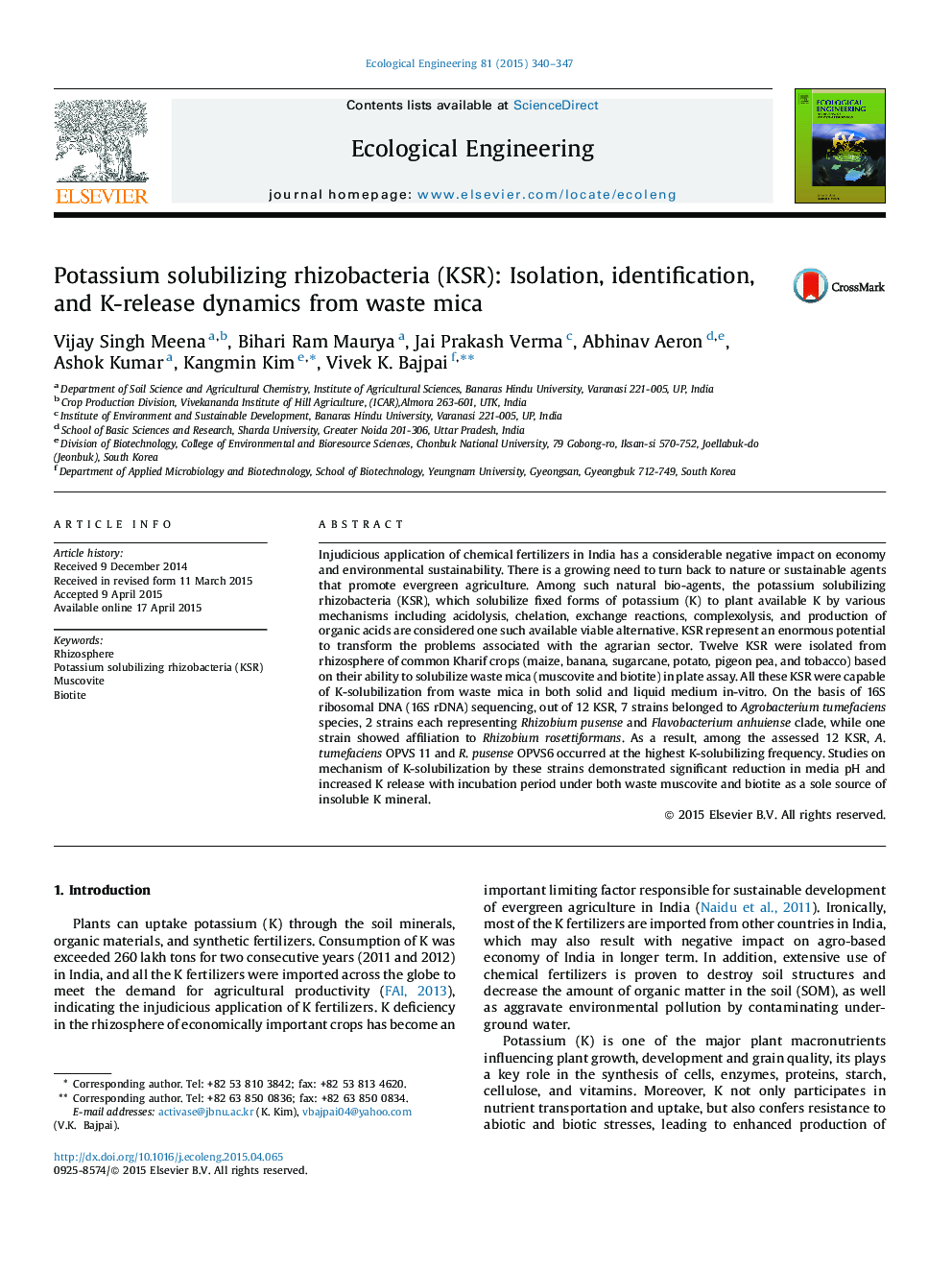| Article ID | Journal | Published Year | Pages | File Type |
|---|---|---|---|---|
| 4389091 | Ecological Engineering | 2015 | 8 Pages |
Abstract
Injudicious application of chemical fertilizers in India has a considerable negative impact on economy and environmental sustainability. There is a growing need to turn back to nature or sustainable agents that promote evergreen agriculture. Among such natural bio-agents, the potassium solubilizing rhizobacteria (KSR), which solubilize fixed forms of potassium (K) to plant available K by various mechanisms including acidolysis, chelation, exchange reactions, complexolysis, and production of organic acids are considered one such available viable alternative. KSR represent an enormous potential to transform the problems associated with the agrarian sector. Twelve KSR were isolated from rhizosphere of common Kharif crops (maize, banana, sugarcane, potato, pigeon pea, and tobacco) based on their ability to solubilize waste mica (muscovite and biotite) in plate assay. All these KSR were capable of K-solubilization from waste mica in both solid and liquid medium in-vitro. On the basis of 16S ribosomal DNA (16S rDNA) sequencing, out of 12 KSR, 7 strains belonged to Agrobacterium tumefaciens species, 2 strains each representing Rhizobium pusense and Flavobacterium anhuiense clade, while one strain showed affiliation to Rhizobium rosettiformans. As a result, among the assessed 12 KSR, A. tumefaciens OPVS 11 and R. pusense OPVS6 occurred at the highest K-solubilizing frequency. Studies on mechanism of K-solubilization by these strains demonstrated significant reduction in media pH and increased K release with incubation period under both waste muscovite and biotite as a sole source of insoluble K mineral.
Keywords
Related Topics
Life Sciences
Agricultural and Biological Sciences
Ecology, Evolution, Behavior and Systematics
Authors
Vijay Singh Meena, Bihari Ram Maurya, Jai Prakash Verma, Abhinav Aeron, Ashok Kumar, Kangmin Kim, Vivek K. Bajpai,
